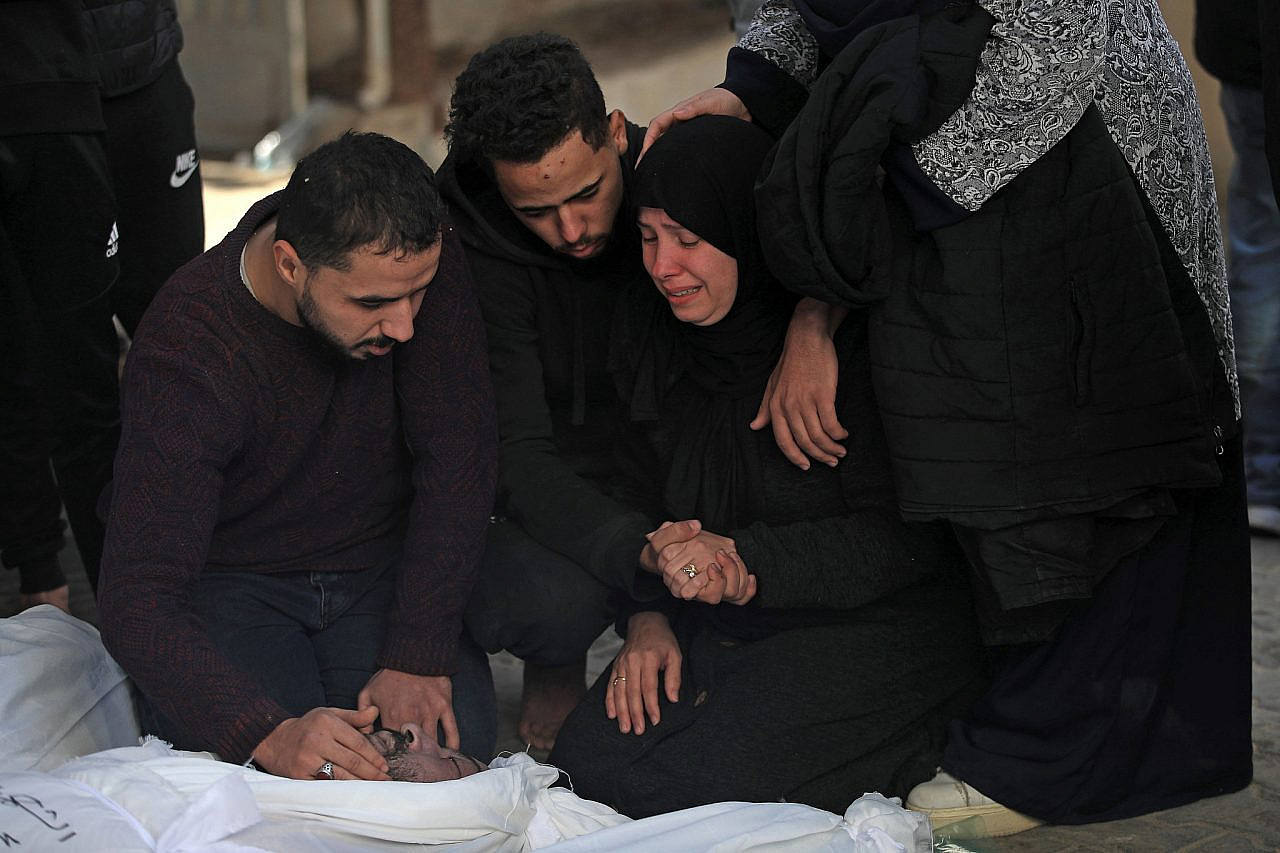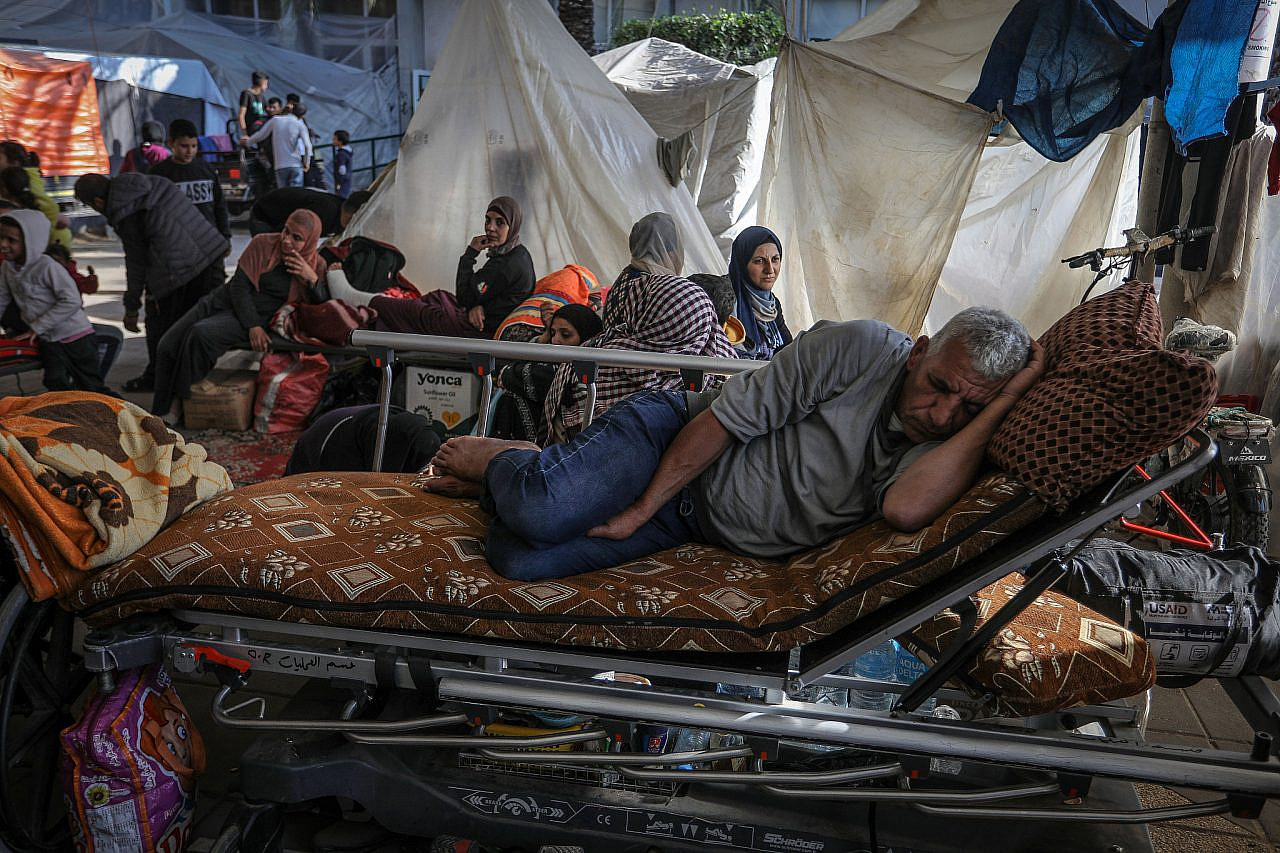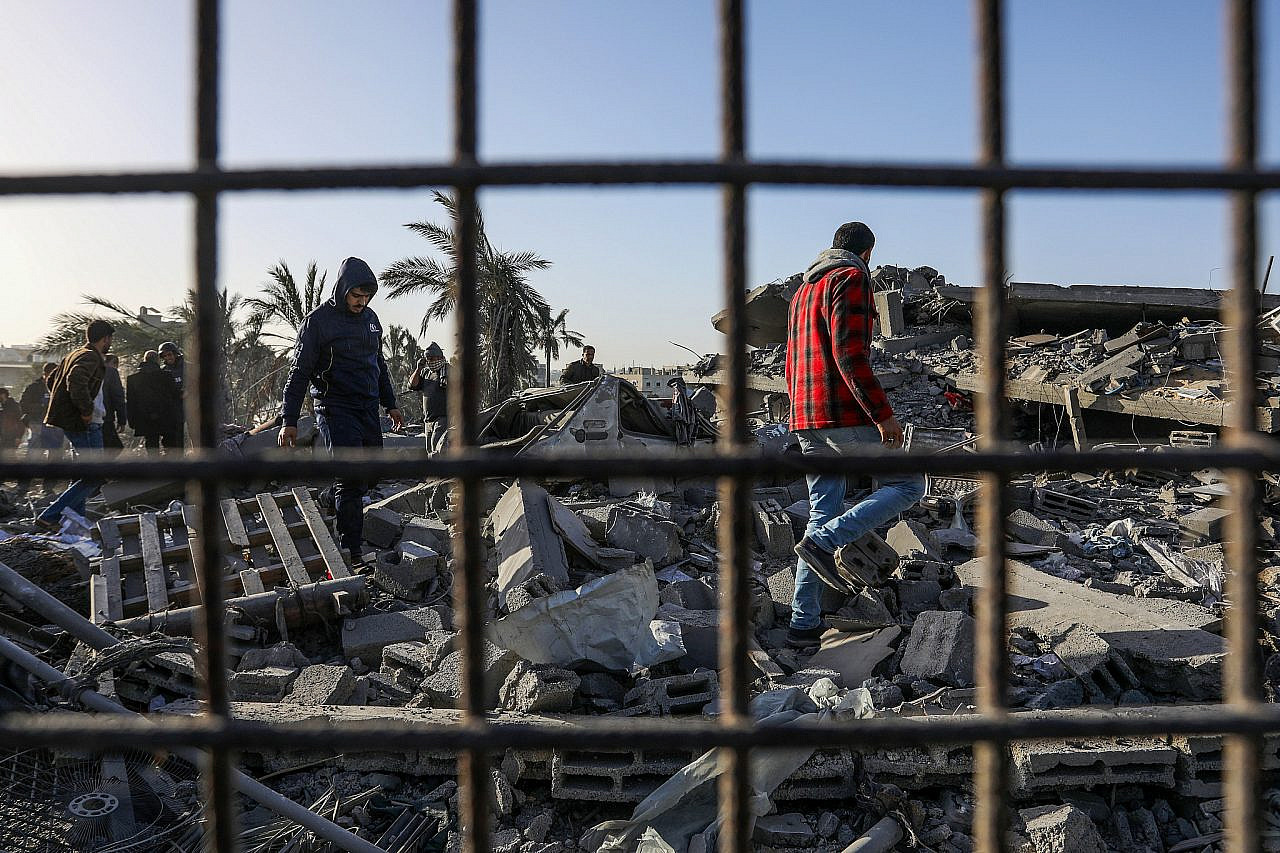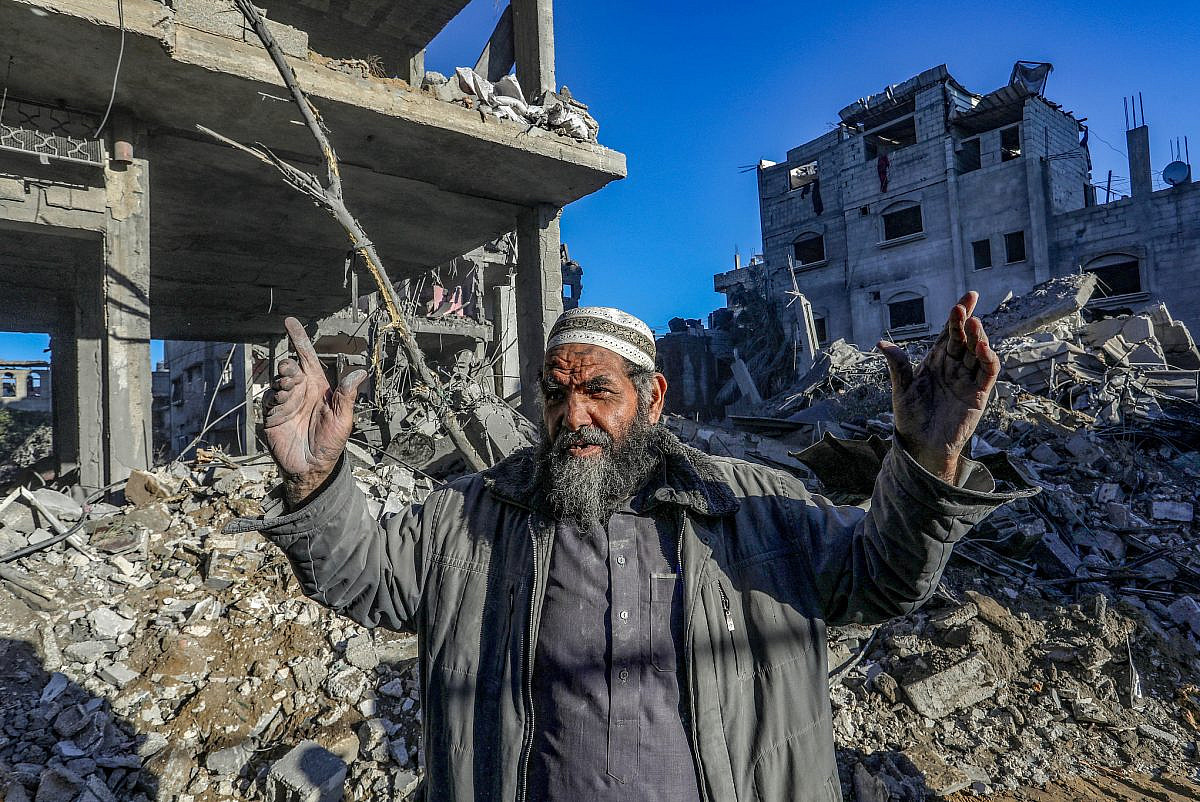The following was written by a Gaza-based Palestinian journalist, known to +972 Magazine, who requested anonymity for themselves and their interviewees out of concern for their safety.
The war is still being waged against us, the civilians of Gaza, after more than 100 days. We are still suffering and aching from the bitter reality of our lives, which are not lives at all. There is little talk of an end to the war, or even any rumors that could comfort our exhausted hearts. A ceasefire seems like an impossible dream that will never be achieved.
No one expected the war to continue for so long. No one expected the extent of the destruction and deaths that we have reached. We are all asking, praying, screaming: Will it ever end?
Yesterday, I called one of my friends to check in on him and his family. We laughed and joked as we cursed the war that divided us, destroyed us, and obliterated our dreams. When I asked him about his father, he went silent for a few seconds before answering: “My father was martyred, along with my brother Malik.”
I wished then that I had not asked him about his father, and that we could have just continued cursing the war. I wished that the mobile connection had not patched through on our ninth attempt. At the end of the call, he asked me: “Is it possible that Hamas and Israel will agree to a ceasefire? Oh God, I hope the war will end.”

We in Gaza are literally dying every day, every minute, every second. Our lives have been turned upside down since October 7, and now only revolve around our most basic needs. Where can we find water? Is there any aid coming in? Where do we go to collect it? Do we get flour today from Salah al-Din Street or Al-Rashid Street? Have the tanks withdrawn from this area or are they still there? Can I go to my house to inspect it? Is it safe to gather my children’s clothes from their rooms?
The fear that dominates me now is the fear of becoming normalized to this reality. That fear extends to the continued and shameful silence of foreign governments to our suffering. But it’s not only them: the absence of the Palestinian government — or perhaps two different governments — and the Palestinian parties is deafening.
I do not know anymore, or perhaps I cannot know, who is to blame for our suffering. Certainly, the main cause is the Israeli government. But we are beginning to wonder: Has the world agreed with Israel to eliminate us? Is Hamas cooperating with Israel? Where is the Palestinian Authority? Why have Israel and Hamas not yet reached any kind of solution? Are American, Qatari, and Egyptian mediations not enough?
Does the Hamas government or the Palestinian Authority have answers to our daily questions? Do they know how we can meet our basic needs? Our dignity and our lives are being violated daily, and no one is providing us with help — do they know, but just don’t care?
What Israel has done to Gaza is a violent earthquake, an earthquake that is deliberately destroying our homes and neighborhoods. But the citizens of Gaza are asking for a government that at least remains in touch with its people, a government that negotiates with Israel to protect us, not just themselves.

‘We want a government that stops the bloodshed’
“Certainly, Israel is a country that does not know anything about international agreements, human rights, or anything humanitarian,” Muhammad Hani (pseudonym), a resident of Gaza, tells me. “Or rather, Israel knows everything but ignores everything, and refuses to respect or obey international conventions. The question is, where is the government in Gaza? What is the role of our government in defending the domestic front?
“We, the civilians, are in a war against the Israeli army with all its strength, equipment, and criminality,” Hani continues. “But where is Hamas when it comes to protecting and preserving the interests of the people? At the very least, we want a government that tells us where the Israeli army is stationed, instead of us being dispersed and knowing nothing. We want a government that stops the bloodshed in Gaza, that at least clarifies and shows us where we are heading, and if there are negotiations or not.”
“I feel as if the war is between [Hamas chief Yahya] Sinwar and [Israeli Prime Minister Benjamin] Netanyahu, and they both want to prove their strength at the expense of civilians,” says Abu Issam (pseudonym), another Gaza resident. “Hamas does not care about the victims among its people in Gaza, and Netanyahu does not care about the hostages or the families of the hostages. We follow what is happening inside Israel daily; perhaps the internal crisis in Israel will put pressure on the government to stop the war.
“I wish we could go out and march in Gaza in order to stop the war,” Abu Ismail goes on. “But as for me, I’ve had enough. I’ve lost everything — my home and all my property. If I live to see the end of the war, I will travel and leave the country to Hamas, which loves what its people do not love.”

I am still confused about what to write and how to express my feelings and opinions. Do we blame just Hamas or Israel, or are both the culprits? Hamas’ October 7 attack does not justify in any way Israel’s actions in Gaza, but we are all dead in Gaza now. We are all numbers that may eventually be counted in the death toll.
Most read on +972
A few days ago, the most influential Palestinian journalist in this war, 24-year-old Motaz Azaizeh, decided that he had no choice but to leave Gaza. This is the most natural decision for a person who witnessed death countless times from Israeli bombing, who has been homeless and displaced for more than 100 days, and whose voice was not heard by those in power despite screaming out to the world.
All this time, we have been pleading for the war to end, but no one is listening to us. I have written dozens of articles and given many interviews throughout this war, but I feel that I, too, have reached the end.




